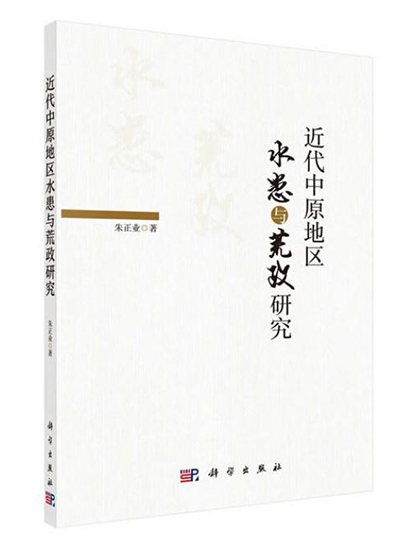Floods and relief in China's Central Plains in modern times

Research on Floods and Relief Policies in Modern Central Plains
The Central Plains were historically a core region for the development of Chinese civilization. However, the region suffered from frequent floods in modern times, due to the abundance of rivers and factors including climate, topography, and the natural and social ecology.
Research on Floods and Relief Policies in Modern Central Plains, written by Zhu Zhengye, a professor from the Department of History at Anhui University, is a response to these occurrences.
The book systematically analyzes the temporal and spatial distribution, causes, and social impacts of modern flooding in the Central Plains. It also elaborates on corresponding relief policies and measures such as water conservancy projects, provisional relief, tax reduction, exemption or deferment, the resettlement of flood-stricken residents, and food regulation. The book attempts to bridge gaps in the field and enrich regional socio-economic history studies.
Since modern times, affected by the Yellow River floods and wars, the Central Plains region gradually began to lag. The State Council officially approved a development plan for the Central Plains Economic Zone (CPEZ) in 2012, giving the region a national strategic status. According to the plan, the scope of CPEZ includes the entire Henan Province and parts of Anhui, Hebei, Shanxi, and Shandong provinces. In this context, the book gives comprehensive and systematic reflections on the effects of flood governance and relief policies in the Central Plains, providing a reference for the development of this region.
In general, the book is comprised of seven sections centered around the Central Plains: natural ecological environments, the temporal and spatial distribution of floods, floods and society, water conservancy projects, provisional relief, the relocation of flood-stricken residents and food control, and tax reduction, exemption or deferment. Each section contains comprehensive and specific content. For example, when talking about the relocation of flood-affected residents, the book covers the migration of Henan residents to the Northeast after the flood in 1931, the intra-provincial relocation of Henan residents in 1933, and the resettlement of residents in the Yellow River flood zone in the late 1930s and 1940s.
The book mainly adopts the theories and methodologies of historiography, with interdisciplinary research that involves economics, sociology, and other related disciplines. It features a combination of macroscopic investigations with microscopic analysis, and qualitative with quantitative analysis, contributing both academic value and practical significance to regional socio-economic history research.
Wang Chengxing is a professor from the School of Management at Anhui University.
Edited by YANG LANLAN
